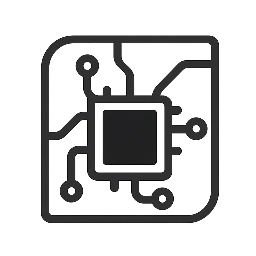1. Introduction to Quantum Computing
What is Quantum Computing?
Quantum computing is the next big leap in computational power. Unlike classical computers that use bits (0s and 1s), quantum computers use qubits, which can exist as 0, 1, or both at the same time. Sounds wild, right? It’s like juggling reality and possibility at once!
Brief History
The idea of quantum computers goes back to Richard Feynman, a Nobel-winning physicist who, in the 1980s, suggested simulating quantum systems using quantum mechanics. From then on, it’s been a race among tech giants and research labs to make this dream a reality.
2. Classical vs Quantum Computers
How Traditional Computers Work
Traditional computers process data in binary. Everything—whether it’s a photo, video, or spreadsheet—is broken down into 1s and 0s, called bits. These bits flow through processors that follow logical rules to execute tasks.
Key Differences
Now here’s where it gets exciting: Quantum computers don’t follow the same rules. Thanks to quantum mechanics, qubits can exist in multiple states simultaneously. This means exponential processing power, especially for complex calculations.
3. The Science Behind Quantum Computing
Qubits Explained
A qubit is like a coin spinning in the air—it’s both heads and tails at once. This phenomenon is called superposition, and it’s what gives quantum computing its edge.
Superposition and Entanglement
Entanglement means qubits can be connected in such a way that the state of one instantly affects the other, no matter the distance. This allows for faster processing and communication, beyond anything we’ve seen before.
4. Major Players in the Quantum Race
Google, IBM, and Microsoft
Google made headlines in 2019 by achieving quantum supremacy, claiming its computer solved a problem in 200 seconds that would take a supercomputer 10,000 years. IBM and Microsoft are also investing billions into quantum platforms like Qiskit and Azure Quantum.
Startups and Academic Institutions
Startups like Rigetti Computing and IonQ are pushing boundaries, while top schools like MIT and Stanford are shaping the next-gen quantum workforce.
5. Real-World Applications
Cryptography and Cybersecurity
Quantum computing can crack traditional encryption, forcing the cybersecurity industry to develop post-quantum cryptography—stronger encryption designed to survive the quantum age.
Drug Discovery and Material Science
Quantum simulations allow researchers to model molecules accurately. Companies like Pfizer and Roche are using this to speed up drug development, potentially saving lives faster than ever before.
6. Quantum Computing and Artificial Intelligence
AI Acceleration
Training AI models takes tons of data and compute power. Quantum computers can dramatically reduce the time needed, making AI faster, smarter, and more efficient.
Quantum Machine Learning
Quantum Machine Learning (QML) blends quantum algorithms with traditional AI. Imagine AI that learns like intuition rather than logic—that’s the promise of QML.
7. How Quantum Computing Will Disrupt Industries
Finance and Banking
Banks like JPMorgan Chase are already exploring quantum algorithms for risk analysis and fraud detection. These systems can process billions of scenarios in seconds.
Supply Chain and Logistics
Companies like DHL and FedEx could use quantum computing to solve routing and delivery problems in real-time, optimizing logistics with unparalleled precision.
8. Challenges and Limitations
Technical Barriers
Quantum computers are super sensitive. Even the tiniest vibration or temperature change can collapse their quantum state—a major challenge called decoherence.
Scalability Issues
Building a few qubits is doable. Scaling to thousands or millions? That’s a whole different beast. Engineers are still figuring out how to keep systems stable and error-free.
9. Quantum Supremacy Explained
What is It?
Quantum supremacy is the point where a quantum computer performs a task no classical computer can manage in a reasonable time.
Who Has Achieved It?
As of now, Google claims it, but others like IBM dispute the context. The race is ongoing, and we might see multiple “supremacies” for different problems.
10. Quantum Cloud Computing
Accessing Quantum Power Online
Platforms like IBM Quantum Experience and Amazon Braket let developers access quantum machines via the cloud. You don’t need a lab—you just need an internet connection.
Major Providers
Tech titans such as Amazon, Microsoft, and D-Wave are offering Quantum as a Service (QaaS), enabling experimentation without owning the hardware.
11. The Role of Governments in Quantum Research
Investments and Regulations
Governments are pumping billions into quantum. The U.S. National Quantum Initiative and China’s Quantum Satellite Network are leading the charge.
Global Competition
It’s not just a tech race—it’s a geo-political sprint. Countries are competing for quantum dominance like they once did for nuclear power.
12. Education and Quantum Literacy
Upskilling the Workforce
There’s a huge demand for quantum-savvy professionals. Platforms like edX, Coursera, and IBM Quantum Learning are stepping in to fill the gap.
University Programs
Universities are launching dedicated quantum courses. MIT, Caltech, and Oxford are among the top institutions offering programs in quantum engineering.
13. Future Predictions
Timeline for Mass Adoption
Experts suggest 10-15 years for full-blown, large-scale quantum computing. But cloud access and hybrid systems are already here.
Emerging Use Cases
From climate modeling to space exploration, the use cases are only limited by imagination—and current hardware.
14. Ethical Implications
Data Privacy Concerns
Quantum computers could break current encryption. This threatens everything from personal emails to national security unless new safeguards are developed.
Weaponization of Technology
There’s a concern about quantum being used for cyber warfare or advanced surveillance. That’s why ethics in quantum research is now a hot topic.
15. How to Get Involved Today
Learning Resources
Start with beginner-friendly tools like IBM’s Qiskit or Microsoft’s Quantum Docs. No physics PhD needed!
Participating in the Quantum Community
Join forums like Quantum Computing Stack Exchange, attend webinars, and follow pioneers like Scott Aaronson on social media.
Conclusion: The Quantum Leap Ahead
Quantum computing is no longer science fiction—it’s science right now. While challenges remain, the pace of progress is mind-blowing. We’re standing at the edge of a computing revolution, one that could reshape everything from health care to how we define intelligence.
If you’re a student, entrepreneur, or just curious—now is the time to dive in. The future isn’t written in binary anymore—it’s encoded in qubits.
FAQs
1. What is the difference between a bit and a qubit?
A bit is binary (0 or 1), while a qubit can be both at the same time thanks to superposition.
2. Can quantum computers replace traditional ones?
Not exactly. They’ll complement classical systems by solving specific problems faster—especially in cryptography and complex simulations.
3. How can I start learning quantum computing?
Try Qiskit, edX courses, or Microsoft Quantum. Start small and grow your knowledge.
4. Is quantum computing dangerous?
It could be if misused—especially regarding data privacy and national security. That’s why post-quantum encryption is being developed.
5. Are there any working quantum computers today?
Yes, but they’re limited in power. IBM, Google, and startups like IonQ have working prototypes available via cloud platforms.

